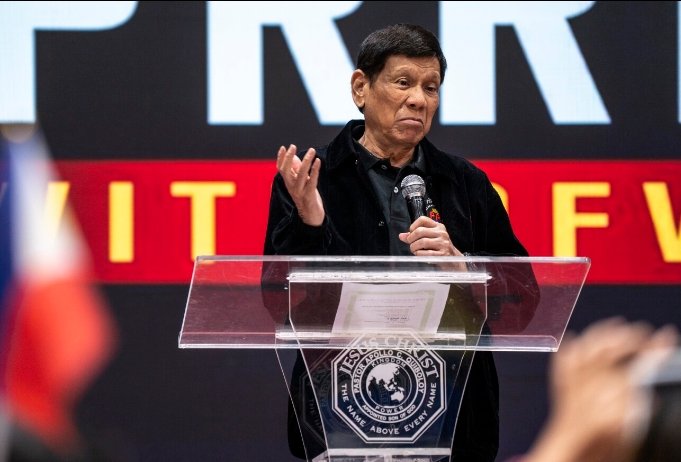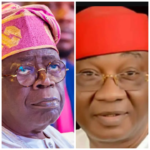FORMER PHILIPPINE PRESIDENT RODRIGO DUTERTE ARRESTED AND DEPARTS FOR THE HAGUE

Rodrigo Duterte, the former president of the Philippines, was arrested on Tuesday at Manila’s international airport, shortly after his arrival from Hong Kong. The arrest was made in connection with a warrant issued by the International Criminal Court (ICC) accusing him of crimes against humanity over his deadly “war on drugs”.
Duterte, 79, was taken into police custody and later transferred to Villamor Air Base, where he boarded a plane bound for The Hague in the Netherlands, the seat of the ICC. His daughter, Sara Duterte, who had planned to accompany him to The Hague, said he was being “forcibly” sent there.

The ICC warrant was issued on March 7, and Duterte’s arrest was confirmed by current President Ferdinand Marcos Jr. Duterte has been accused of overseeing a brutal anti-drugs crackdown that resulted in the deaths of thousands of people during his presidency from 2016 to 2022.
Upon his arrest, Duterte questioned the basis for the warrant, asking “What crime [have] I committed?” in a video posted online by his daughter Veronica Duterte. “If I committed a sin, prosecute me in Philippine courts, with Filipino judges, and I will allow myself to be jailed in my own nation,” he said in a later video.

Activists have hailed Duterte’s arrest as a “historic moment” for those who perished in his drug war and their families. “The arc of the moral universe is long, but today, it has bent towards justice. Duterte’s arrest is the beginning of accountability for the mass killings that defined his brutal rule,” said Peter Murphy, chairman of the International Coalition for Human Rights in the Philippines (ICHRP).
Duterte’s arrest marks a significant development in the Philippines’ complex politics, with his successor, President Marcos Jr, having initially refused to cooperate with the ICC investigation but later changing his stance. The demand for justice in Duterte’s drug war is seen as closely tied to the political interests of Marcos Jr.
Duterte remains widely popular in the Philippines, and his arrest is expected to have significant implications for the country’s politics and human rights situation.























































































































































































































































































































































































































































































































































































































































































































































































































































































































































































































































































































